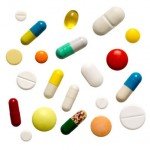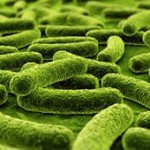Can Probiotics Be Used To Treat Depression?
 We know that friendly bacteria in probiotics can really do wonders on our digestive tracts and immune systems.
We know that friendly bacteria in probiotics can really do wonders on our digestive tracts and immune systems.
Researchers are now seeing that the bacteria in our gut may be influencing our brains.
These findings may give us new alternatives to treating anxiety, depression, and other disorders.
Let’s break down the findings and see what we can learn about probiotics and depression.
Stress and Probiotics
You may’ve heard of the gut being the second brain, and this might be very true!
Scientists have been piecing together how the gut and brain are linked and affect each other.
Research shows a potential link between individuals with depression, anxiety, or other stress-associated psychiatric disorders and bowel conditions or ailments.
In 2011, researchers at University College Cork in Ireland conducted a study that examined mice, depression/stress levels, and a broth containing the probiotic strain, Lactobacillus rhamnosus JB-1.
It was found that the mice receiving the Lactobacillus rhamnosus JB-1 broth had significantly fewer symptoms that are tied with anxiety, stress, and depression than the mice that were given the placebo broth.
The mice receiving the probiotic broth also had less corticosterone (a stress hormone) when they were put in stress-inducing situations like difficult mazes.
John Cryan, one of the neuroscientists in the research study, stated that by influencing the bacteria in the gut, you’re able to have strong, wide range effects on the chemistry of the brain and linked behaviors.
Cryan also said that this means we may be able to treat psychiatric disorders by way of the gut, such as ingesting a probiotic supplement or yogurt.
He warns that any old yogurt won’t do the trick and specific strains are needed to affect the brain such as Lactobacillus rhamnosus JB-1.
Overall, this is an incredible finding and probiotics or yogurt would most likely have notably fewer symptoms that potentially harmful or dependent prescription drugs.
The Vagus Nerve
To further understand the link between stress and probiotics, the researchers analyzed the brains of the mice receiving the probiotic broth.
They targeted receptors in the body that allow brain cells to receive messages.
The specific receptors that they focused on were those for gamma-aminobutyric acid (GABA).
GABA is a neurotransmitter that popular anti-anxiety drugs such as Valium use in order to prevent certain functions of the central nervous system, which controls various psychological and physiological activities.
Researchers discovered that one GABA receptor factor was found in higher amounts in the mice receiving probiotic broth, where normally in depression the amounts are lower.
The probiotic fed mice also had lower amounts of additional GABA receptor components that are typically decreased in animals who are experiencing stress or anxiety.
Researchers then cut the vagus nerve, which informs the central nervous system of gastrointestinal changes.
After this, it was seen that the probiotic fed mice and the subsequent effects on GABA receptors and behavior was lessened.
This suggests that the vagus nerve is indeed a channel that allows the gut to influence changes on the brain.
In Conclusion…
This is promising news for probiotics and the treatment of depression. However, more studies will be needed to continue this new understanding, especially on human subjects.
Overall, probiotics could be a likely candidate to help treat depression, stress or anxiety and may eventually be a great alternative to prescription drugs and anti-depressants.








